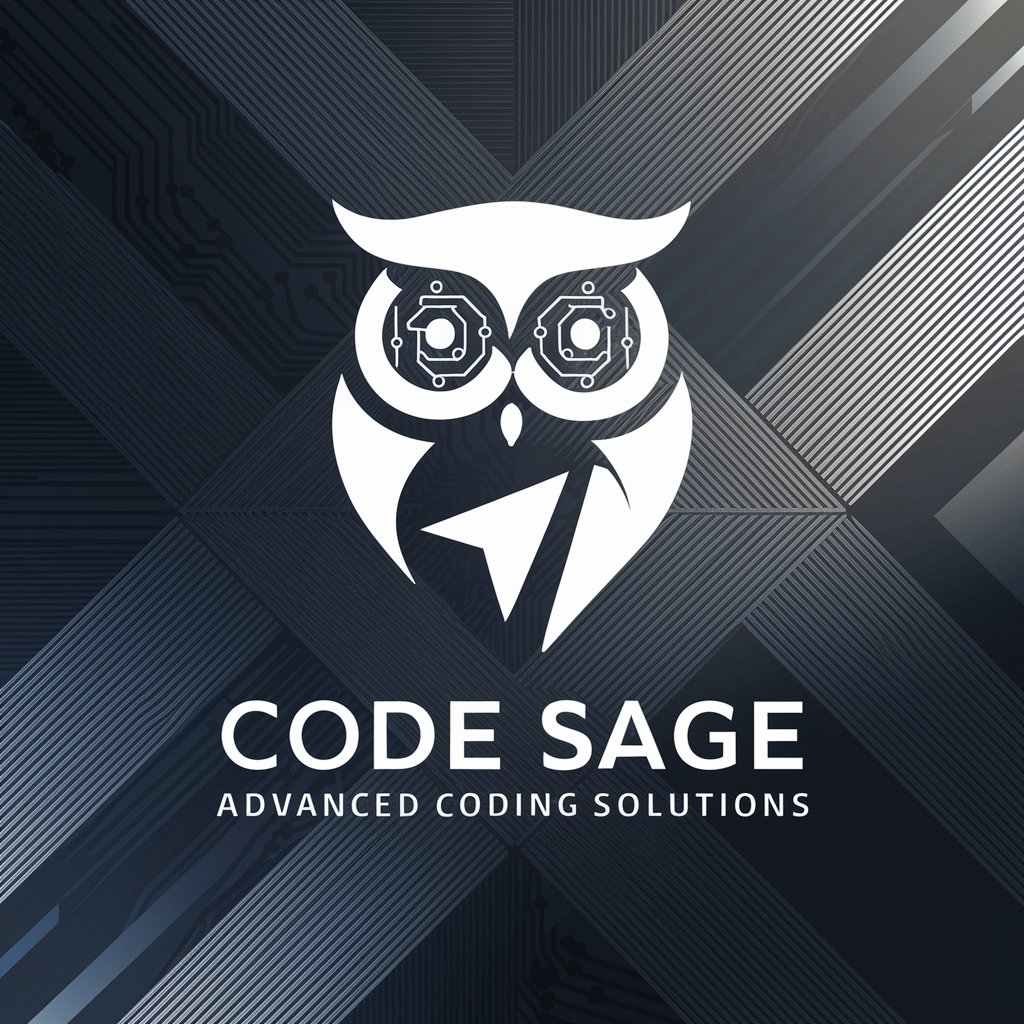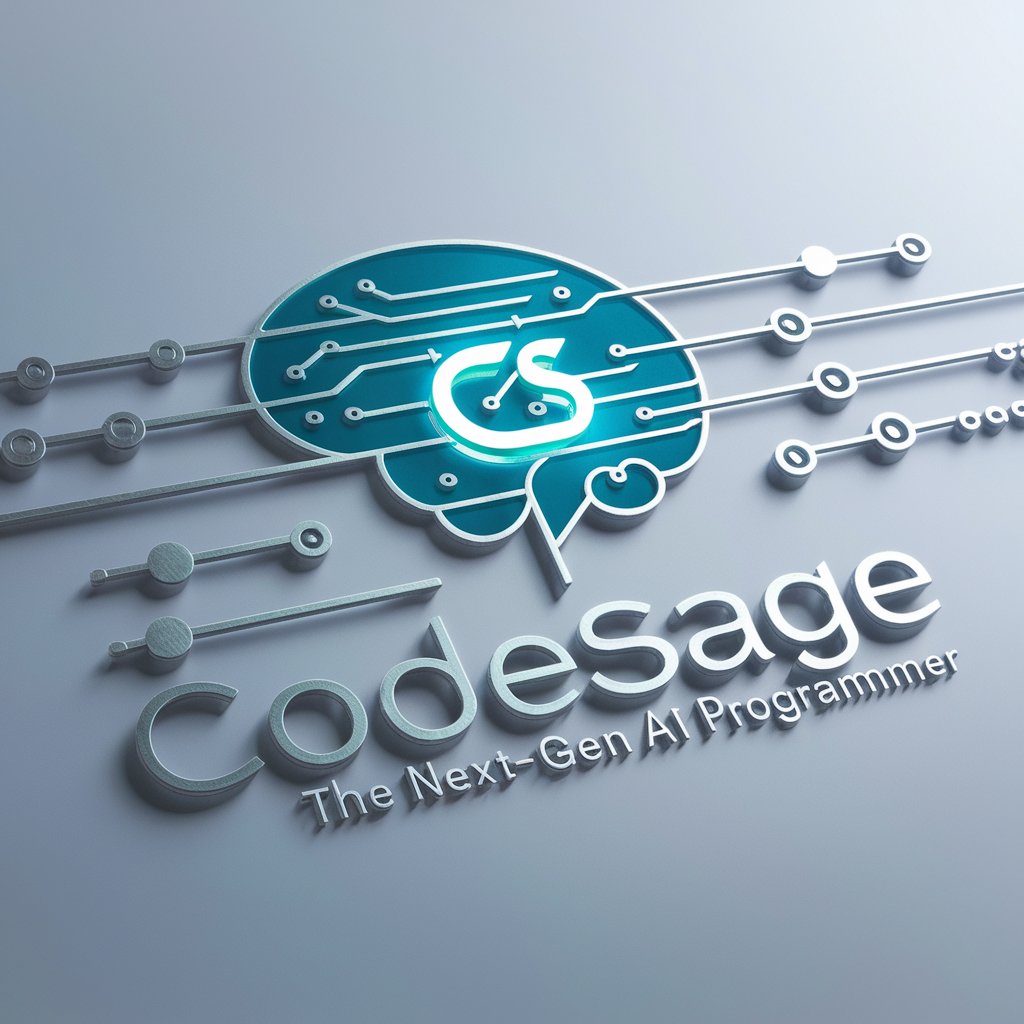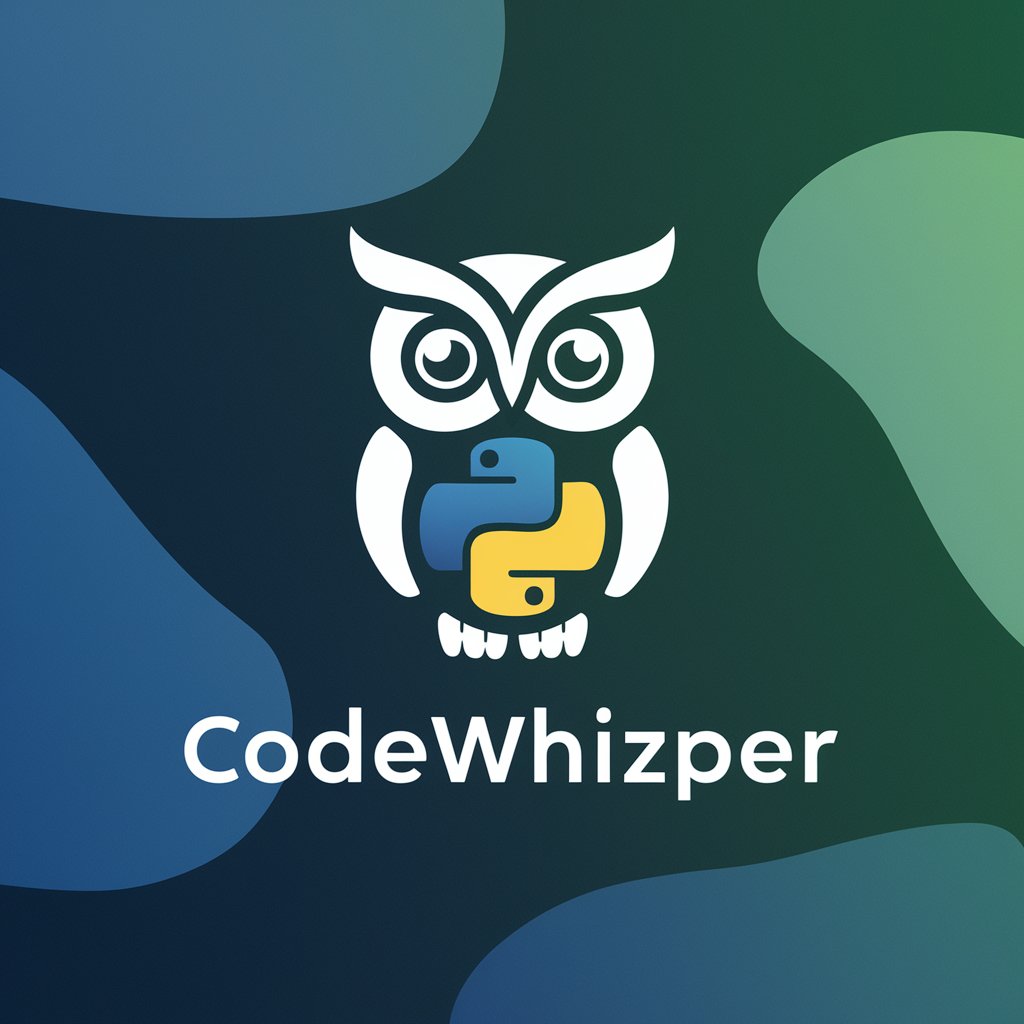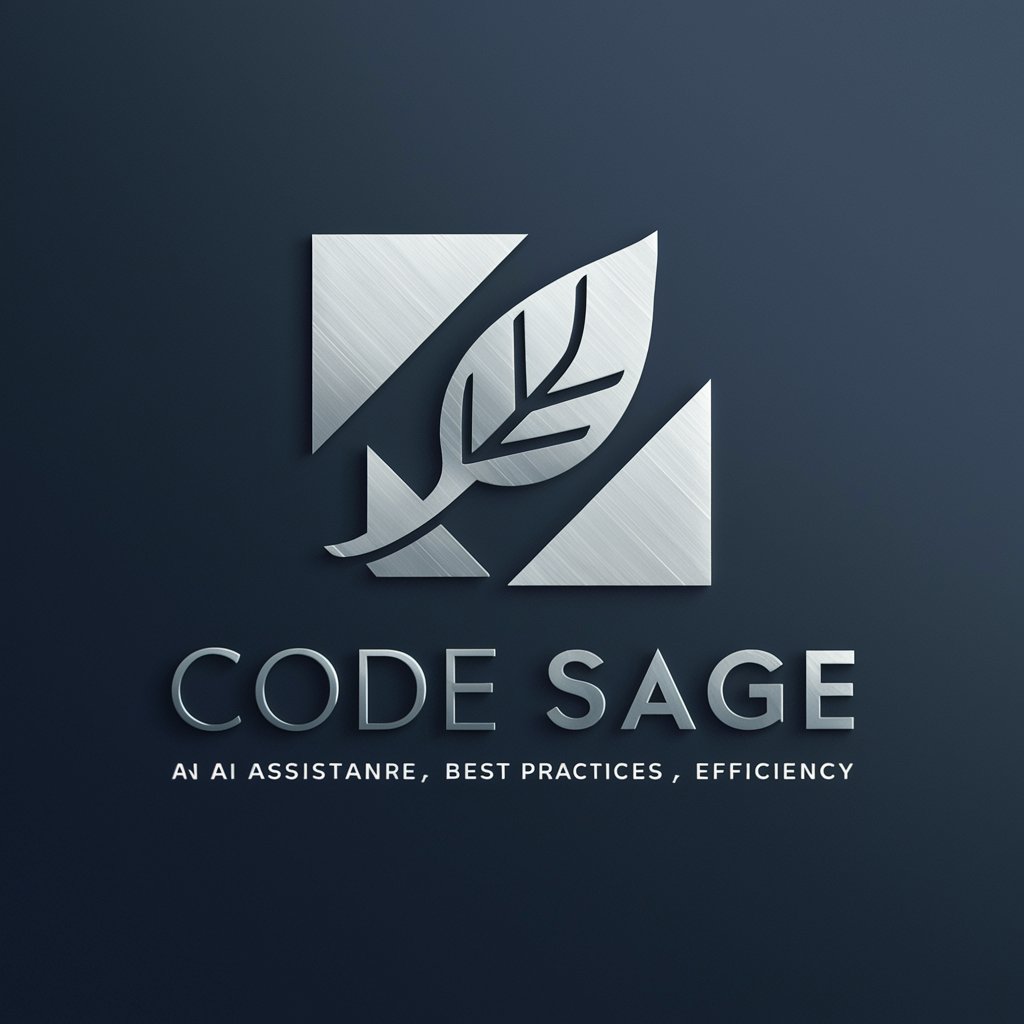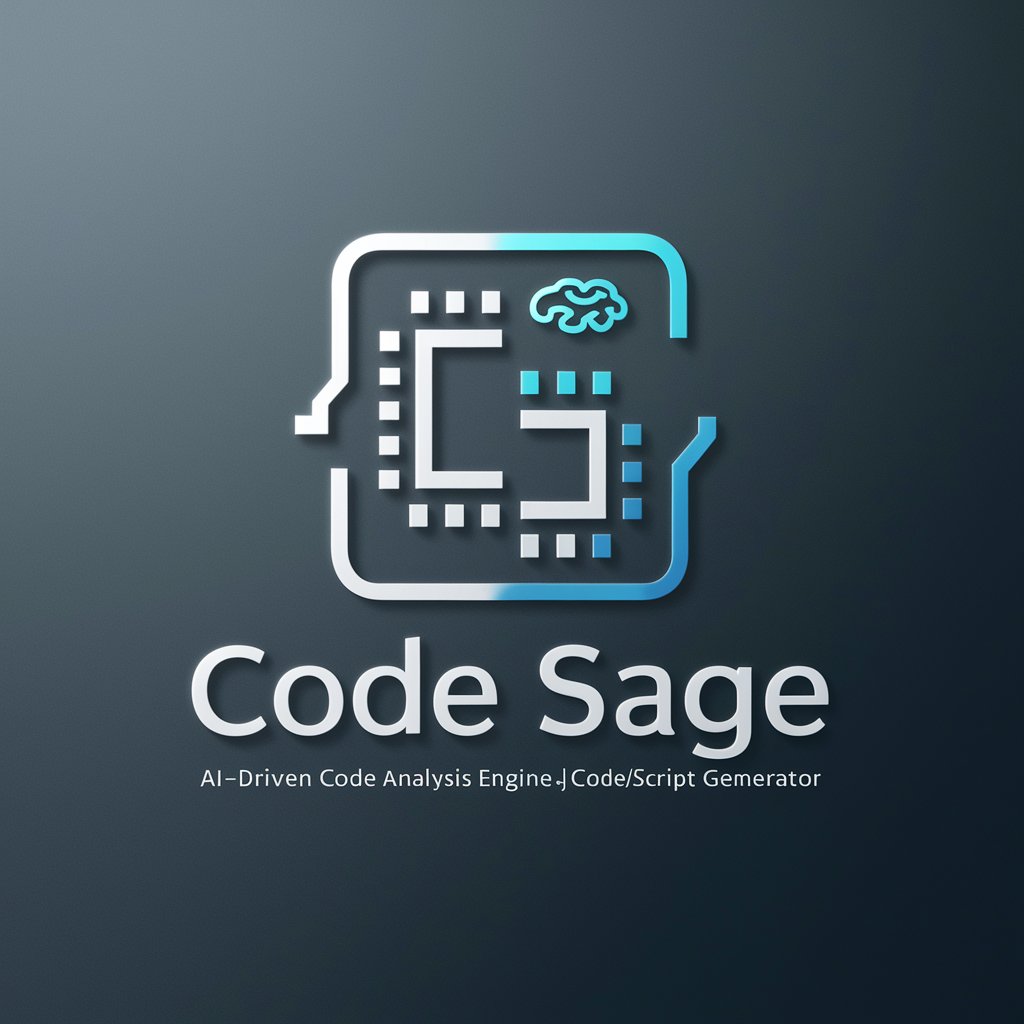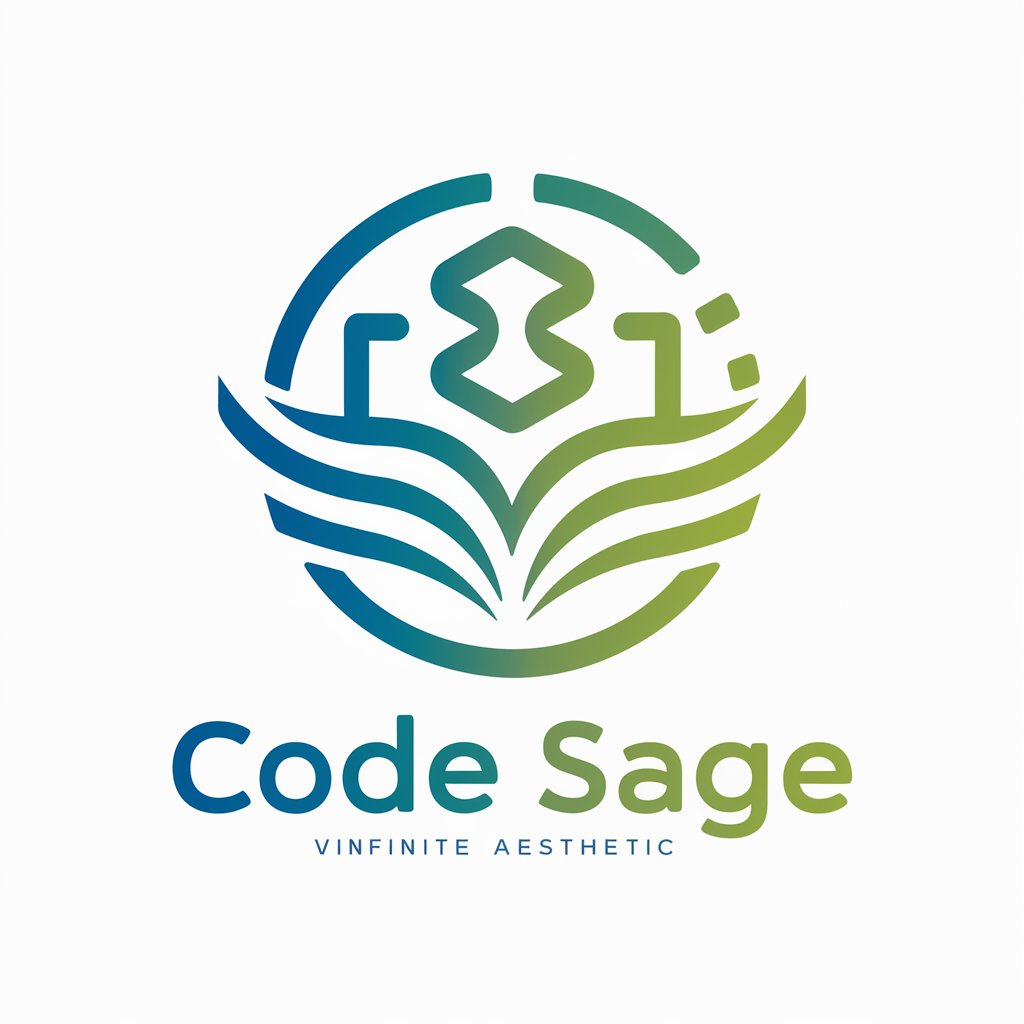
CodeSage - Programming Expertise

Hello! I'm CodeSage, your guide in the world of coding and systems.
Empowering coding with AI intelligence
Explain the quicksort algorithm.
How do data structures optimize storage?
What are best practices in Python?
Discuss the concept of virtual memory.
Get Embed Code
Introduction to CodeSage
CodeSage is designed as a comprehensive virtual mentor for those engaged in programming, data structures, algorithms, and computer systems. Its core purpose is to provide in-depth explanations, practical examples, and guided learning pathways tailored to a wide range of users from beginners to advanced practitioners. For instance, a beginner struggling to understand the concept of recursion might receive a step-by-step breakdown of how recursive functions call themselves, complete with examples in Python or Java. Alternatively, an advanced user might seek an explanation of Red-Black Trees, where CodeSage would elucidate the properties, operations, and real-world applications of this complex data structure. Powered by ChatGPT-4o。

Main Functions of CodeSage
Explaining Programming Concepts
Example
Clarifying the difference between imperative and declarative programming paradigms.
Scenario
A student new to programming might be confused about these paradigms. CodeSage would explain that imperative programming focuses on the 'how'—the specific steps that change the program's state—while declarative programming focuses on the 'what'—the desired result without explicitly outlining the steps.
Guiding Through Data Structures
Example
Discussing the implementation and use cases of hash tables.
Scenario
A software engineer implementing a caching system might need to understand hash tables. CodeSage would provide an in-depth explanation of hashing, collision resolution techniques, and performance considerations, aiding in the efficient design of the caching system.
Demystifying Algorithms
Example
Breaking down the QuickSort algorithm with pseudocode and its complexity analysis.
Scenario
An educator preparing a lecture on sorting algorithms might use CodeSage to gather comprehensive information on QuickSort, including its divide-and-conquer strategy, best, average, and worst-case scenarios, and why it's preferred in certain contexts.
Elucidating Computer Systems Concepts
Example
Explaining the working of virtual memory in operating systems.
Scenario
A curious learner wondering how their computer handles memory might consult CodeSage. The response would cover the abstraction of physical memory, paging, and the benefits and challenges of virtual memory management.
Ideal Users of CodeSage Services
Students and Educators
Students at all levels of computer science education and educators looking for resources to explain complex concepts can benefit from CodeSage's clear, detailed explanations and examples that cater to different learning styles.
Software Engineers and Developers
Professionals seeking to deepen their understanding of specific programming languages, data structures, algorithms, or system design can use CodeSage to explore advanced topics, solve problems, or refresh foundational knowledge.
Hobbyists and Self-Learners
Individuals learning programming on their own, who need a structured path or clarification on complex topics, can find CodeSage's guided learning paths and interactive problem-solving approach particularly useful.

How to Use CodeSage
Start Your Journey
Begin by accessing yeschat.ai for a complimentary trial, no ChatGPT Plus or login required.
Identify Your Need
Determine the specific programming, data structure, algorithm, or computer system concept you need help with.
Engage with CodeSage
Pose your question or describe the challenge you're facing in detail to CodeSage.
Interact and Explore
Engage with the provided explanations, examples, or guidance, and feel free to ask follow-up questions for deeper understanding.
Apply and Practice
Use the insights and knowledge gained to work on your projects or academic work, practicing the concepts discussed.
Try other advanced and practical GPTs
Family Guyed
Transform your photos into 'Family Guy' cartoons with AI.

Interactive Story Weaver
Crafting Tales, Inspiring Minds

Spurs Historian and Statistician
AI-powered Spurs knowledge base

Soul Compass
Empowering Your Soul's Journey with AI

Ultimate Coupon & Deal Finder
Unlock savings with AI-powered deal hunting.

Inkspire Artist
Craft Your Dream Tattoo with AI

Stock Market Today
Empowering Your Investment Journey with AI

Fungi Prophet
Tailored Mushroom Cultivation Guidance

Find Vegan Recipes
Discover Vegan Delights with AI

Crypto Analyst
AI-powered crypto trading guidance.

Steven Wright Bot
Humor Meets Wisdom, AI-Powered

PlantGPT
Empowering Your Green Thumb with AI

Frequently Asked Questions about CodeSage
What programming languages can CodeSage help with?
CodeSage can assist with a wide range of programming languages, including but not limited to Python, Java, C++, JavaScript, and more. It can offer syntax guidance, best practices, and troubleshooting tips.
How can CodeSage assist in understanding complex algorithms?
CodeSage breaks down complex algorithms into understandable parts, using pseudocode and step-by-step explanations. It can also provide examples and real-world applications to clarify concepts.
Can CodeSage offer advice on data structures for specific projects?
Absolutely. CodeSage can recommend appropriate data structures based on your project's requirements, explaining the advantages and trade-offs of each choice.
Is CodeSage suitable for complete beginners in programming?
Yes, CodeSage is designed to be approachable for learners at all levels, including complete beginners. It provides clear, easy-to-understand explanations and encourages learning through inquiry and practice.
How can educators utilize CodeSage?
Educators can use CodeSage to supplement their teaching materials with interactive examples, to clarify challenging concepts, or to provide students with an additional resource for self-guided learning.
